Courageous Worker Stands Up Against Sexual Harassment And Racism At Toxic Manitoba Hydro
- TDS News
- Breaking News
- Indigenous
- Op-Ed
- December 9, 2019
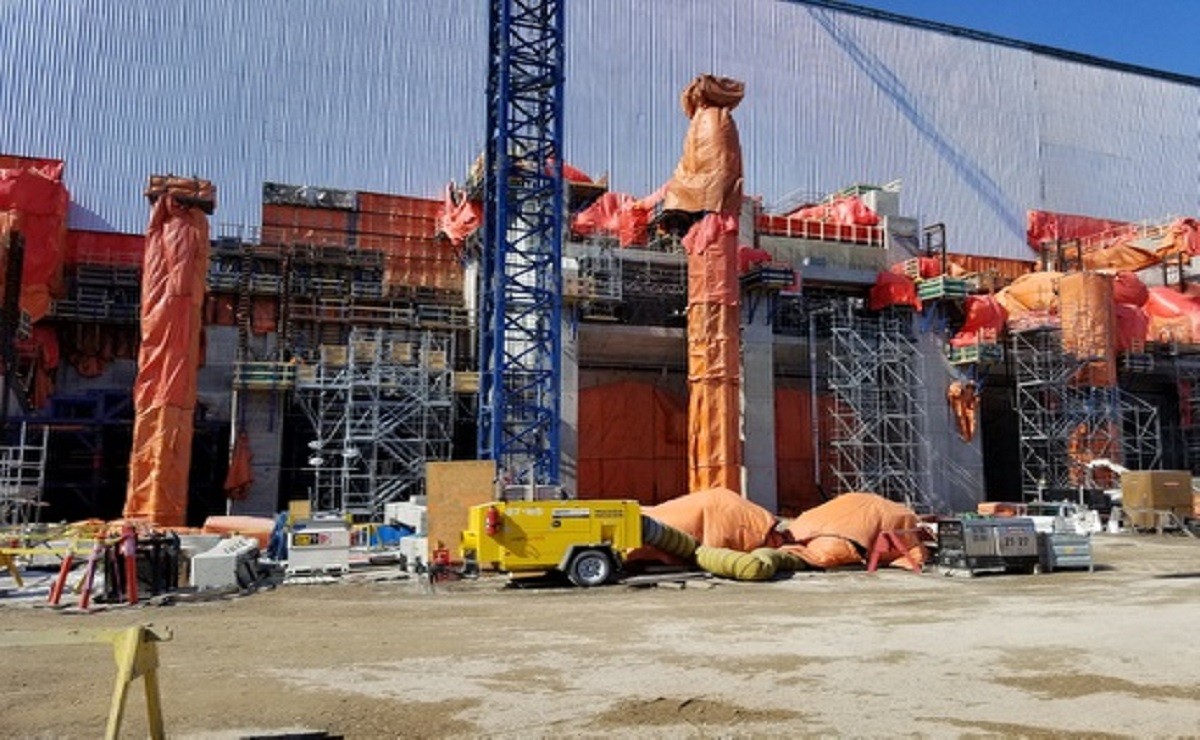
From October 13, 2017, to May 28, 2019, I was a member of the scaffolding department with BBE at the Keeyask Generating Station construction project in Northern Manitoba. In the 20 months that I worked there, I met and worked alongside countless tradespeople, labourers, machine operators, safety officers, engineers, teamsters, and managers from all across Canada. It was the biggest construction project I’d ever had the privilege to be a part of.
Anything that I had ever experienced in the construction industry was elevated to a much larger and more chaotic scale at this particular job site. Crews of workers were frequently stacked on top of each other, with everyone trying to perform their individual tasks while having to meet strenuous deadlines and take dangerous short cuts. Life-threatening hazards were visible everywhere. The sounds of whistles were audible at every turn to notify workers of a crane lifting something over their heads. This, coupled with people shouting endlessly and the buzz of every type of truck or forklift filling up the roadways, made it all feel at times like I was thrust in the middle of an industrial circus; the New York City of Manitoba construction sites. It was exhilarating with never a dull moment. I felt I could thrive in this wild and exciting environment and, for the most part, I did.
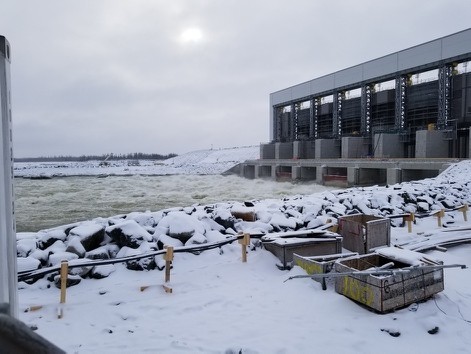
The sweat from the indoor heat or the freezing cold of the outdoors was all part of the fun. I have always felt that any job that puts your body and mind through painful situations will make you stronger in the long run. Not everyone has or will have the luxury of being able to work with their hands for a living. I’ve come to realize that if you’re sore at the end of the day, you must be grateful that your body is healthy and that you can work.
These ideas were reinforced every time I was trucked in and out of the job site on a school bus full of slightly less optimistic men than myself. Having worked in unionized construction for just under ten years, I’ve come to the understanding that the work we do and the physical conditions that go with it are the best part of the job. The filth, the noise, the weather, the heights, the depths, the dangerous machinery, and all other potentially fatal hazards we surround ourselves with are what I enjoy most about the job. I can hold my head high knowing I do work that others are too afraid to attempt to perform.
Beyond the glory and glamour of being a part of this brave sector of the Canadian workforce, there is an evil and twisted mindset that festers within the construction industry. Racism, sexism, and virtually every other form of social intolerance not only exists at the Manitoba Hydro Keeyask job site, but they are also openly tolerated, causing them to grow and spread in the industry like an incurable disease.
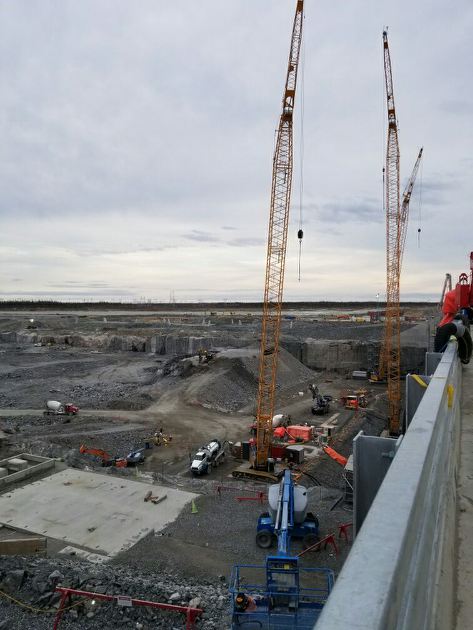
This disease is not merely spread by those who unapologetically share their fear-based opinions, but also by all the silent bystanders who sit around listening and never objecting to the vocalized ignorance that permeates the construction industry. It can be extremely disheartening and down-right frightening to listen to a room full of jaded white men complain about world issues and have nobody speak up in opposition. It is an echo chamber of ignorance.
The lunchroom where I would spend my breaks during the workday was frequently filled with thirty or so workers from the scaffolding crew. Like most other crews on site, it was generally a mix of Canadians from every province. I often thought to myself as I sat down to eat, “what or who is everyone going to hate today?”
One day, in particular, stands out in my consciousness because of the overt racism expressed by a foreman. It should be noted that the foreman for our crew was an openly racist white man in his late-forties from Thunder Bay. He was an open book and saw nothing wrong with saying things that could only be deemed as racist. Once when instructing me to find an easier way to reach something with a wrench, he used the term, “do it the way a white man would.” I asked him to repeat what he had said because there was a Manitoba Hydro engineer nearby who I realized could be a witness to his culturally insensitive behavior. To my detriment, my foreman astutely picked up on what I was trying to do and snarled at me instead and said that I was trying to get him in trouble. We butted heads over his conduct and demeanor. Eventually, I called him a bigot and surprisingly he responded with, “yeah I know I’m a racist.”
Other workers were always present when similar comments were uttered, but nobody seemed to care enough to say anything. At the work camp where we lived, a large dining hall was provided for everyone to eat breakfast and dinner. The work camp housed approximately two thousand people. Being a worker on his crew, I ate dinner with him one evening in an attempt to see another, more humane side of him. During dinner, he began remarking on how he’s been up in Keeyask for long enough that the “squ*ws are starting to look good.” On this day, this particular remark was directed towards the house cleaning staff who were almost entirely all Indigenous women from nearby reserves.
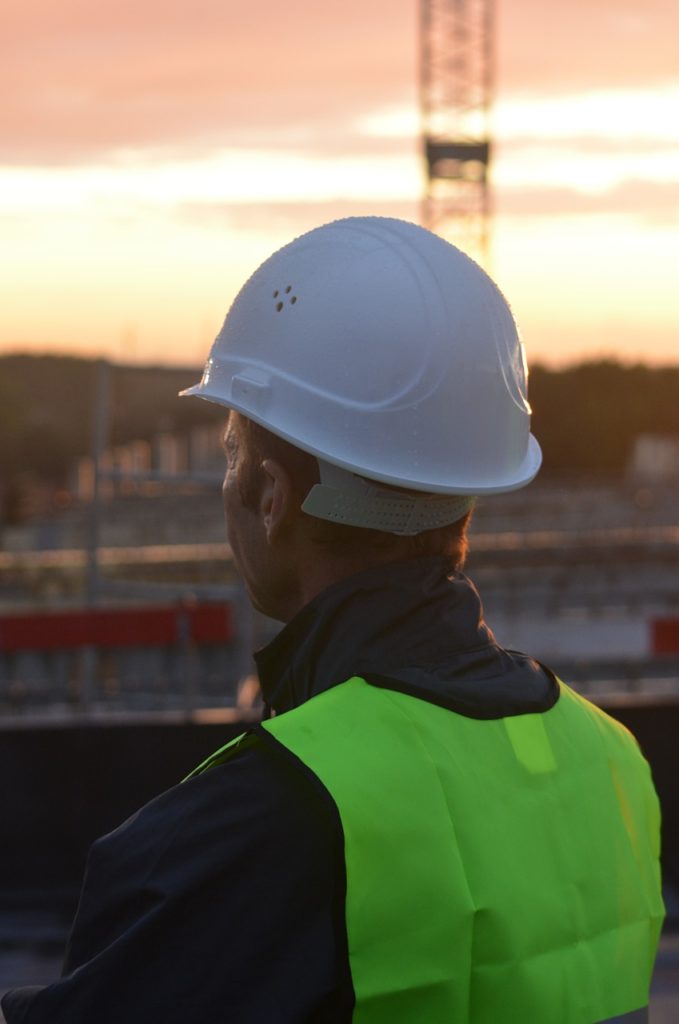
Towards the end of that same three-week shift, another incident occurred with the same foreman. The crew and I had been assigned to build scaffolding as part of the framework for a heated shelter for the winterizing process of the job site; a process that was far behind schedule. As I helped drape tarps over the roof, a co-worker of mine – a middle-aged white man from Edmonton – referred to the type of trade we were in as “n*gger work.” Aside from feeling the sting of his overwhelmingly ignorant and hate-filled words, his conduct also saddened me on a personal level. Up until this day, this individual had come across as well-spoken and somewhat educated. I had enjoyed talking with him before he disclosed his deep-seated feelings to me, so I felt a slight sense of betrayal after that particular racial epithet left his mouth. Unfortunately for me, this same sense of betrayal was not uncommon. In fact, it was something I would experience time and time again at Keeyask. Just as I would begin to trust someone and view them as a competent, socially progressive human being, they would suddenly hurl some backward, minority-hating statement and I’d be back to where I started from, ground zero and alone.
One day, as the sun disappeared beneath the horizon, only members of the crew willing to work overtime stuck around. Our foreman was unaware of who had actually decided to work overtime. In his confusion, he inquired about the whereabouts of one of the apprentices. The apprentice in question was a middle-aged black man from Quebec of Haitian descent. This individual had opted not to work overtime and therefore had gone back to camp for the night. One of the crew members remarked that even though the apprentice did not like to work overtime, he was still a good worker who followed directions well. Our foreman snickered, saying “this was because his people used to be slaves.” He then asserted that the apprentice “would’ve made a good one” before summing his inflammatory comments up by characterizing his work ethic as, “some sort of N*gger shit.”
By this point, I was no longer surprised by his words and his actions since it was expected for him to say these sorts of things. His racism and general ignorance had become all too predictable to me given the behaviour of the other men I worked with. Several other workers, all white men, were present at the time. One of them from Vancouver Island chimed in with an offensive joke of his own. He asked those seated around him, “what would Bert and Ernie be called if they were black?” After waiting for a second, he responded with an answer of his own – a single word summing up his moral deficiency – “N*ggers.” The man who told the joke was dismayed that he was only one who found the joke funny enough to laugh at. Upon hearing the deafening silence from everyone, including the foreman, he simply shrugged his shoulders and impishly said, “c’mon! It’s funny.”
I stewed in my anger as the day came to a close. I asked myself repeatedly why I had purposely decided to cast myself out in the cold wilderness of northern Manitoba with a crew of racist white men. The following morning I approached a friend and co-worker of mine as he finished his night shift. We both passed one another as I arrived at the job site. When he was about to leave I informed him of what I’d heard the day before and that I didn’t know what to do about it. I should mention that this friend and co-worker of mine is a black man from Winnipeg. His disposition visibly went from happy to disappointed to defeated. He revealed to me how some people think “rape is funny”, despite the fact that slaves in the past were often assaulted, raped and murdered by their slave owners. We went our separate ways, but not before he told me that “if nobody says anything when things like this happen, nothing will ever change.”
In one of our regular morning meetings with the entire scaffolding crew present, our general foremen asked the workers and foremen if anyone had any questions or concerns. Reeling from my earlier conversation, I summoned the courage to speak up. I lashed out at my foreman and revealed his past racist comments to everyone in the room. I deliberately censored my words, so instead of directly quoting him, I watered down his comments. Regardless, the point still hit home. The grin that he normally wore on his face faded away. He blinked frantically as though he was holding back tears. Even so, he stared at me the entire time.
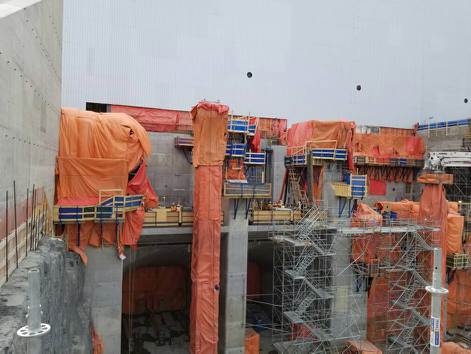
My open forum attack lasted less than a minute before I resumed my spot within the gaggle. Silence fell upon the room. Everyone looked at me wide-eyed. Nobody knew what to say. One of the two general foremen finally spoke up, informally dismissing everyone before directly approaching me and ordering me to his office. Someone patted me on the back as I left, but most people just stared at me like deers caught in the headlights; scared, but happy it wasn’t them I’d called out.
After meeting with the labour relations department, the other members of the crew who’d been present during the incident the day before were all called in for questioning. Three men were called into the room and apparently none of them remembered what had happened. The entire incident turned into my word against his. The experience was not only a huge slap in the face but a huge wake-up call for me. I realized that if I was going to take on issues like racism in the construction industry, I would, for the most part, be on my own, union brotherhood be damned.
Life carried on at Keeyask. Although no one was punished after the statement I’d made, there was a rippling effect. People who otherwise had fairly loose-lipped became extremely careful in the way they talked to me and I was often referred to as a “rat.” Some people took my side and scoffed at the idea that three of my “union brothers” would rather lie and defend their racist foreman than stand up for what is right. “Cowards”, someone had called them. I agreed, simply saying that “they’re no brothers of mine.” Other workers approached me telling me they didn’t like the way I addressed the issue. I simply took their disdain for my actions as a way of them expressing their own fear. Fear that I might go after them next. Suddenly their comfortable little world where they were free to spew racist rhetoric all day was not so comfortable anymore. I had rocked the boat and almost tossed one of the first mates overboard in doing so.
Construction workers, especially specialists like scaffolders, ironworkers, carpenters and so on, carry themselves with a sense of bravado. We’re supposed to be tough, courageous, no-nonsense types. Most of the time we are. So often we throw ourselves into dangerous situations with smiles on our faces. We enjoy being faced with life-threatening challenges and succeeding at them. So why not challenge ourselves to attack the racism and social intolerance that exists so abundantly within our very own workplaces? Take even just a small fraction of the bravery required to build a skyscraper and re-divert that into the discussions we have in our lunchrooms, our smoke pits, our work trucks, our dining halls or the job site banter that gets shouted over the top of all the power tools.
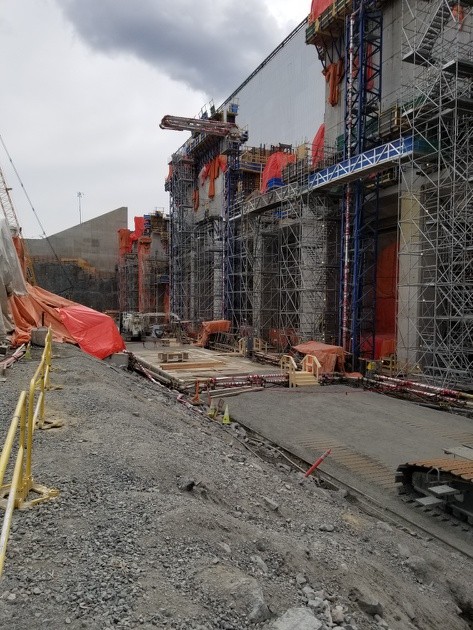
We’re supposed to be building a bigger, better and brighter world than the one we currently live in. Not just with hardware, materials, machines, and fasteners, but with the conversation, heated discussions, arguments, and healthy debates. Hand tools are effective in our jobs and can even be therapeutic at times, but the greatest tool we all possess is our voice. Let’s use it. The platforms we are given to broadcast our opinions aren’t necessarily ones we’ve picked, and we are therefore often left with an audience that disagrees with us. That’s fine. Just because a room full of people disagree with what you have to say, it doesn’t necessarily mean that they didn’t need to hear it.
My openly racist foreman was eventually fired about five months later after a female forklift operator reported him to supervision for sexual harassment. Allegedly, he demanded oral sex from her while suggestively grabbing his crotch. Nobody was surprised when this happened. His whereabouts are unknown to me, but then again, I’ve never inquired.
Aaron Jones
Journeyman Scaffolder
United Brother of Carpenters and Joiners of America
Local 343 Manitoba
Read The Follow Article Here. Hydro Sites Are Toxic: I Opened Up My Bag To Eat Lunch And Found A Noose Inside Said A Black Employee








